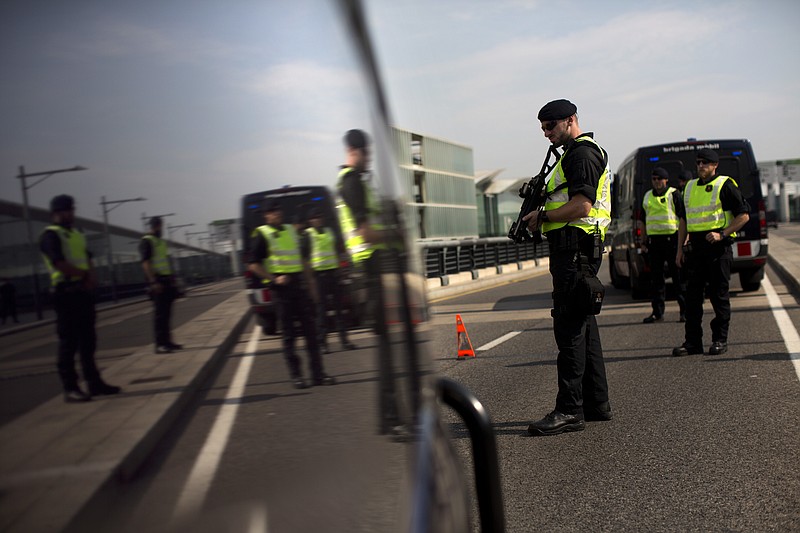BARCELONA, Spain (AP) - Spain's Interior Ministry began coordinating all police efforts Saturday in Catalonia, a tactic designed to halt the region's referendum on secession following tensions with the regional police force controlled by the pro-independence Catalan government.
The move came at the request of the top prosecutor in Catalonia, an Interior Ministry official said, at a meeting Saturday with the regional Mossos d'Esquadra and the regional chiefs for the National Police and the Civil Guard, the two forces with a nationwide presence.
The "Mossos" - as they are often referred to in Catalonia - are the largest police force in the northeastern region. They have long been criticized for not cracking down hard enough on Catalonia's planned Oct. 1 referendum on independence that the Spanish government considers illegal.
The civilian head of the Catalan police is part of the pro-secession regional government that is pushing ahead with plans for the vote despite the ballot's suspension by Spain's Constitutional Court.
Saturday's meeting in Barcelona assessed the actions taken so far to stop the Oct. 1 vote, the ministry official said, requesting anonymity because he was not allowed to be named in media reports. He said the measure "does not mean taking command" of the Catalan police, but it is "simply to agree on a means of coordination."
The control of the police in Catalonia has become a sensitive topic as the political confrontation with the central government has poured onto the streets. There have been intermittent pro-referendum protests, at times by thousands of people, since a judge ordered raids in Catalan government offices and arrested a dozen officials on Wednesday.
All the arrested had been released by Friday, although six of them remain under investigation for allegedly taking part in preparations for the referendum.
On Saturday, several hundred students remained inside a Barcelona university after spending the night there protesting the Spanish government's efforts to block the vote.
"We are showing that, as students, we have a part to play. And that for now, we are staying put," Jordi Vives, a spokesman for the students, told Catalan public television.
Some protesters said on social media that pro-independence politicians are expected to talk to the students at Barcelona University over the weekend.
Polls show that support for secession in Catalonia, a prosperous region in northeastern Spain, rose to more than half of its 7.5 million residents at the height of the financial crisis that began in 2008. That support has been waning in recent months as Spain's national and regional economies have begun thriving again.
__
Parra reported from Madrid.
